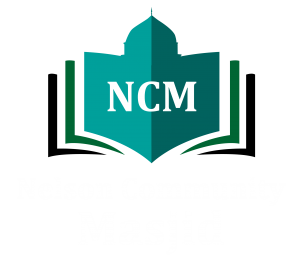Vision
Our vision is to see happiness, wellbeing, love, and peace in every home in Pendle. Every home will be free of poverty, hunger, and difficulties
Mission Statement
We will work in partnership with our communities and organisations to deliver projects and services to benefit everyone regardless of race or religion. The mission is to spread love, mercy, happiness, and peace into every home in Pendle. We will strive to remove any obstacles that exist in preventing this from happening. This section will look at the importance of mental health and wellbeing in fulfilling our vision.
What is Mental Health?
What is Mental Illness?
What will NCM do to promote mental health and wellbeing?
- Create a greater awareness in the community about mental illness through activities and workshops
- Remove the taboos by normalising and talking about mental illness
- Respond sensitively and appropriately to people affected by mental health difficulties
- Facilitate self-help and support groups
- Be familiar with the treatment options, referral pathways and professionals working
- with mental health difficulties
- Develop a self-help toolkit and structure to help people build their resilience to deal with mental and emotional distress
- Focus on increasing protective factors for individuals, families, and communities
- Challenge the stigma and discrimination associated with mental illness
- Support individuals and families experiencing distress
Holistic Wellbeing
The World Health Organisation (WHO) defines health as ‘a state of complete physical, mental and social wellbeing and not merely the absence of disease or infirmity’. Well-being is the experience of health, happiness , and prosperity. It includes having good mental health, high life satisfaction, a sense of meaning or purpose, and ability to manage stress. More generally, well-being is just feeling well.
To achieve this there must be a balance in the following areas:
1. Mental Wellbeing
Mental wellbeing is what maintains positive mental health. A healthy mindset is our mental resilience against life’s stress and challenges. Enhanced mental health helps us make healthy choices, recognize our value, our worth, and our potential. Your mental wellbeing is about your thoughts and feelings and how you cope with the ups and downs of everyday life. Good mental wellbeing increases our ability to share our gifts and skills with the world with ease. It helps us maintain healthier boundaries and good communication in our relationships. The ability to be fully in the moment is a useful way to encourage healthier mental wellbeing.
2. Emotional Wellbeing
Emotional wellbeing contributes to healthy self-esteem, self-worth, self-confidence, and good emotional intelligence. Positive emotional wellbeing helps us cope and thrive in our relationships. It often coincides very much with our mental wellbeing. Emotional wellbeing is having the ability to accept, own and express your emotional needs and feelings when required.
Emotional wellbeing is vital to living a life of wholeness, balance, and contentment. Simply put, it is about resilience – getting up when life knocks you down. It means that one can bounce back from setbacks and thrive despite problems.
Being emotionally healthy includes:
- having self-esteem and self-respect
- being able to recognise and express feelings
- being able to manage emotions to suit the situation
- recognising and managing the factors that affect emotions
- feeling positive about life (which includes feeling useful and being optimistic about the future)
3. Physical Wellbeing
Physical Wellbeing The ability to improve the functioning of your body through healthy eating and good exercise habits. It is not just about being disease-free. It relates to our bodies’ energy levels, endurance, and flexibility. Physical wellness is our physical lifestyle, the ability to sleep, eat, perform, be free from addiction and medication, and be resilient against stress.
Taking care of your body is a powerful first step towards mental and emotional health. The mind and the body are linked: when you improve your physical health, you will automatically experience greater mental and emotional wellbeing. For example, exercise not only strengthens our heart and lungs but also releases endorphins, powerful chemicals that energize us and lift our mood.
Being physically healthy includes:
- enjoying being physically active
- having good balance, coordination and agility in everyday tasks as well as sport
- having the strength, stamina, and suppleness required for daily life, work and play
- having fewer illnesses, diseases, and injuries
4. Spiritual Wellbeing
Spiritual wellbeing is the ability to experience meaning and purpose in life. It is known to be one of the most powerful sources of strength, inspiration, and motivation on the journey of recovery and healing. It certainly helps lower anxiety, stress and depression levels. And can help cultivate more gratitude and positivity. Developing our sense of spiritual wellbeing can make us feel happier, more in control and helps us deal with stress more effectively. It can help lower anxiety, and depression levels. Developing your sense of spiritual wellbeing is about asking yourself what is important to you and how this influences how you live your life.
5. Social Wellbeing
Social wellbeing can be linked to values, traditions, and lifestyle and includes any social aspect that supports greater wellbeing. Our friends, family, the community, the groups we are part of, our culture, religion, place of education or place of work are all important. That is why feeling as if you belong to certain tribes can be incredibly supportive in our mental, emotional, physical, and spiritual wellbeing.
Social wellbeing is about the ability to communicate, develop meaningful relationships with others, and maintain a support network that helps you overcome difficulties and issues like loneliness. To develop social well-being, we need to build our social skills, like gratitude, kindness, and communication. Social skills make it easier for us to have positive interactions with others, helping us to feel less lonely, angry, or disconnected. When we have developed our social well-being, we feel more meaningfully connected to others.
Being socially healthy includes:
- Being able to interact with a range of people and having a sense of belonging
- Having respect, empathy and tolerance for other people
- Being able to manage emotions to suit the situation
- Recognising and managing the effects of actions on others
- Being aware of rights and responsibilities
Risk and Protective Factors
Risk factors are influences that have been found to increase the likelihood that people will experience mental health difficulties. Protective factors are influences that have been found to decrease the likelihood of people developing mental health difficulties, even when risk factors are present. NCM will strive to remove all risk factors where possible whilst at the same time help to develop as many protective factors as possible.
Risk factors
- Genetic influences
- Low IQ and learning disabilities
- Communication difficulties
- Difficult temperament
- Physical illness
- Academic failure
- Family disharmony or break up
- Parents with mental illness or substance abuse
- Physical, sexual, neglect or emotional abuse
- Parent criminality
- Death and loss
- Bullying
- Discrimination
- Breakdown in or lack of positive friendships and relationships
- Deviant peer influences
- Peer pressure
- Poor pupil to teacher relationships at school
- Socio-economic disadvantage such as unemployment, poverty and lack of income
- Homelessness
- Disaster, accidents, war or other overwhelming events
- Other life events
Protective factors
- Secure attachment experience in childhood
- Good communication skills
- A positive attitude
- Experiences of success and achievement especially in childhood
- Family harmony and stability
- Supportive parenting
- Strong family values
- Receiving affection from loved ones
- Clear and discipline in the family
- Support for education
- Wider support network in the community
- Good housing
- High standard of living
- Range of sports and leisure activities
SOME OF THE SERVICES AND ACTIVITIES THAT NCM WILL OFFER TO PROVIDE A HOILISTIC APPROACH
To provide a balanced approach to wellbeing NCM will strive to offer the following:
- Reduce exposure to risk
- Build protective factors to reduce the effects of risk
- Offer Mental health awareness workshops
- Build caring relationship
- Establish a support network
- Offer an employment coaching service to help people find jobs
- Provide social benefit and housing support
- Build strong family ties and values through the NCM Family programme
- Have a mentoring service for all the family
- Parenting classes and workshops
- Organise a forest club to encourage a relationship with nature
- Marriage guidance workshops
- Offer a sports and fitness programme for the family
- A scout club for the youth
- Increase volunteering opportunities in the community
- Offer “food for mood” workshops based on the Sunnah
- Encourage a greater involvement of women in the community through gatherings, activities, and workshops
- Skills workshops offering many life skills
- Fitness and exercise classes for men and women at the masjid
- Offer tuition to help in academic progress
- Relaxation and mindfulness workshops
- A walking group for women
- Offer a youth leadership course

